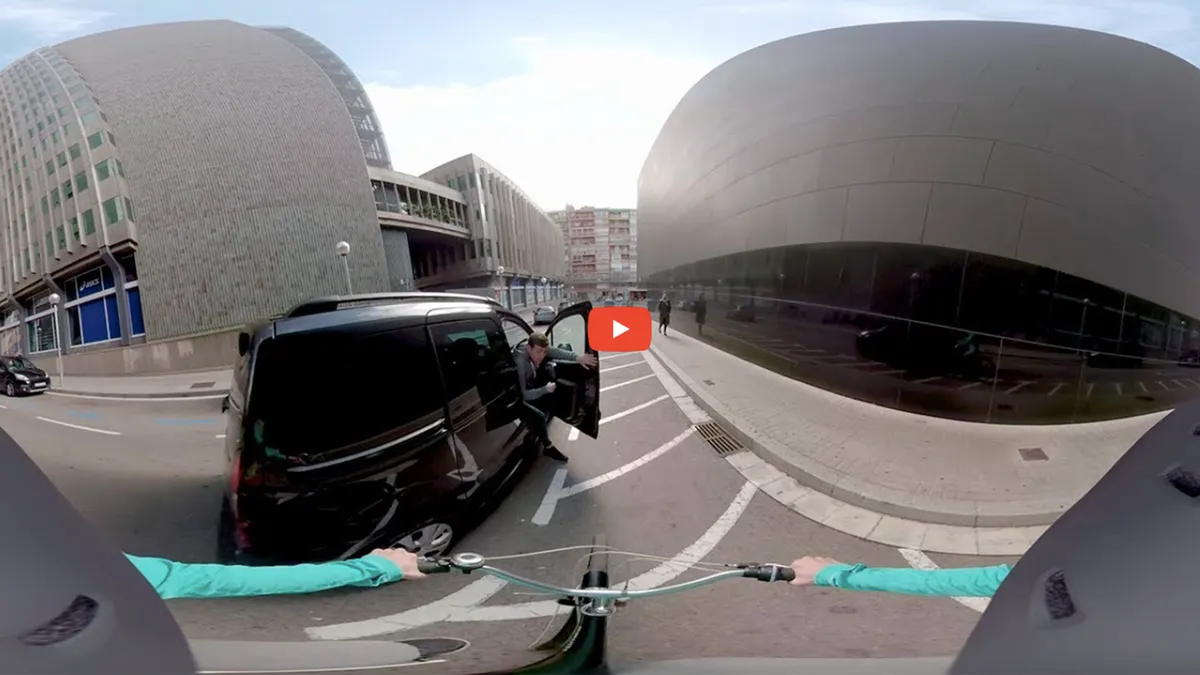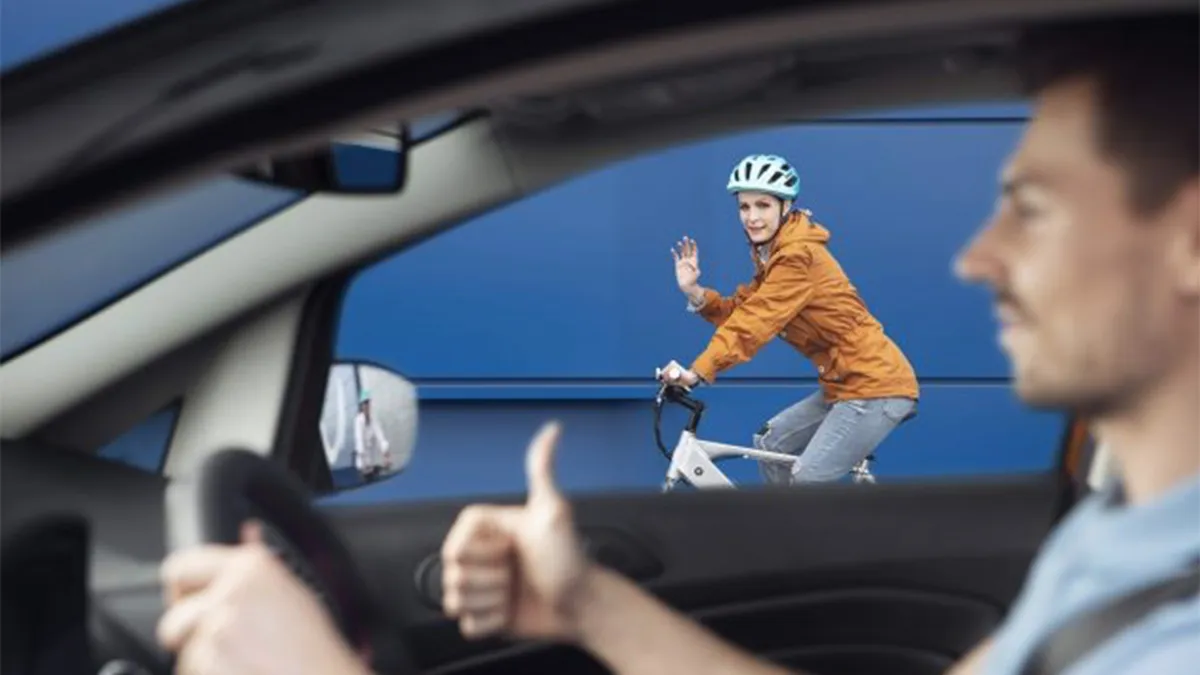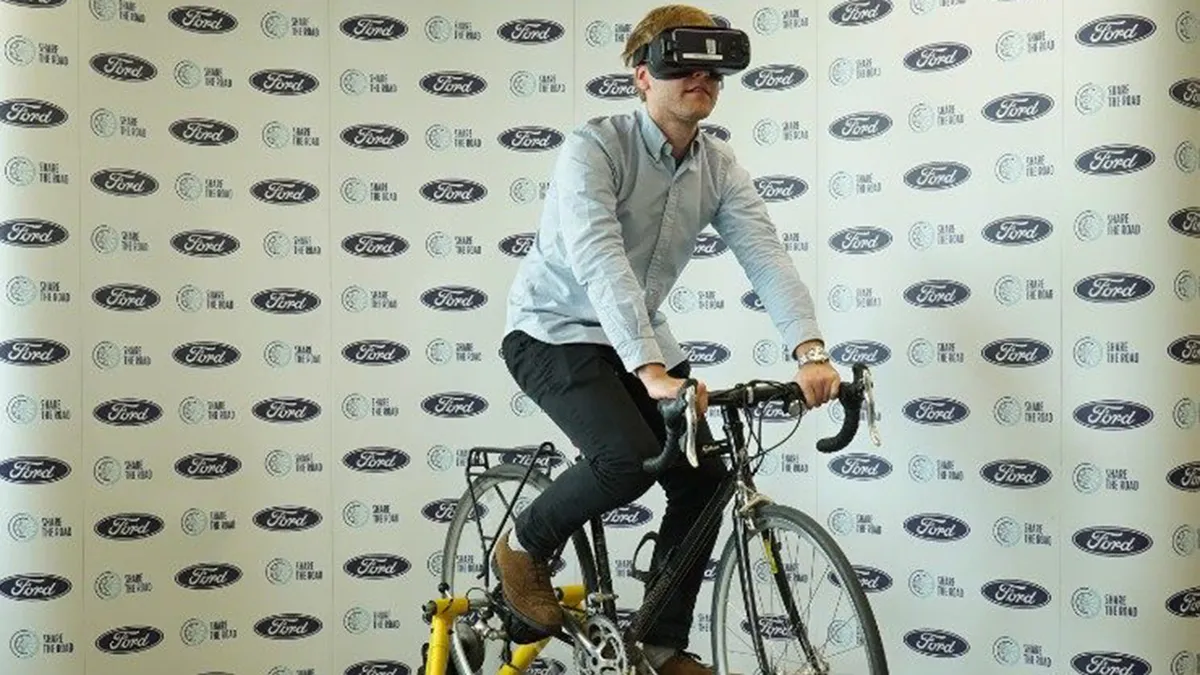As part of its new Share The Road campaign, motor company Ford has developed a virtual reality tool to give drivers and cyclists a taste of what inconsiderate road use feels like to each other.
It claims that 70 percent of people who go through the VR experience display greater empathy to their driving or cycling counterparts.
The close pass. The cut-up. The turn-without-indicating. Most cyclists have born the brunt of these bad driving habits and muttered a few choice comments under their breath at the driver: 'If they only knew what it was like they wouldn't do it!' 'Why are they risking my life for a few seconds advantage?'
It's these hair-raising at best and potentially fatal at worst interactions that are captured in Ford's virtual reality WheelSwap experience.
The idea is that if drivers experience what it's like to use the roads as a cyclist, alongside vehicles behaving inconsiderately, they'll behave more considerately towards cyclists in the future, and vice versa.

The Share The Road campaign seeks to foster harmony between road users by encouraging empathy. Ford states that it "underlines the company’s belief that enabling more people to cycle safely, especially for short journeys, benefits everyone."
Over 12,000 people took part in the research in five different European cities and, according to Ford, the results have been positive.
70 percent of WheelSwap users displayed greater empathy to their driving and cycling counterparts compared to those who had not watched the films, 91 percent planned to change their on-road habits, and, claims Ford, 60 percent changed their behaviour two weeks later.
However, there is detail missing here, such as how empathy levels were measured, what behavioural changes took place and whether or not the original test subjects were self-selecting, which may have affected how open they were to changing their behaviours in the first place.
The VR videos also allow cyclists to experience what it's like to be a driver around cyclists who "jump red lights, cycle down one-way streets the wrong way and swerve unexpectedly," with the view to promoting reciprocal empathy for car drivers.

While this sounds commendable on some levels, the research presented by Ford itself states that cyclists account for one in 12 of all road accident fatalities and while it's beholden on all road users to ride or drive responsibly, it's more likely to be the cyclist who comes off worse in any incident between car and bike.
It also doesn't take into account that most cyclists are also qualified drivers. A 2012 report by the Department for Transport in the UK indicated that 80 percent of cyclists hold a driver's licence.
The videos will be included in Ford's Driving Skills for Life program, which is free for 17- to 24-year-olds across Europe, and is available to watch online.
What do you think of Ford's campaign?

